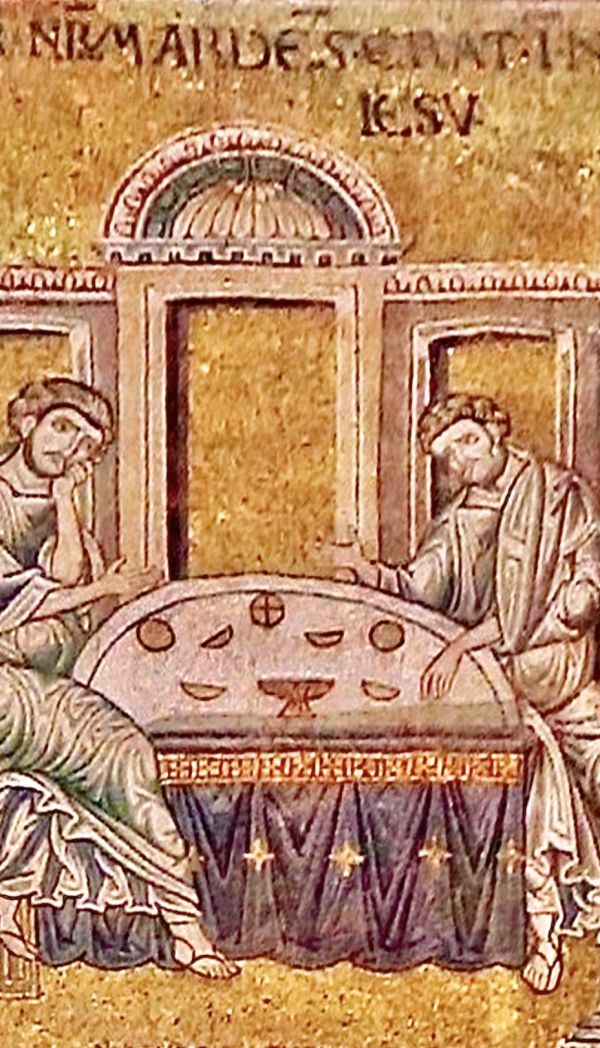(Mk 16:9-15)
Despite difficulties in believing, disciples are made heralds of the News of God.
Glad Tidings favourable to humanity that intends to travel towards itself - without the baggage of the overwhelming accumulations of tradition, or the conditioning of fashions.
Jesus brings out the transmutative capacities already endowed to each one.
His proposal supplants the oppressive yoke of the external perfections preached by the old religion; replaced precisely with our simple family virtues, grasped from within.
Not: proselytise, set up, fight, but 'welcoming'. Not: 'obey' God, but 'resemble' Him by being oneself; and so on.
The church should not have become an ethical communion of heroes and saints; rather, of sinners and undecideds.
Indeed, the story of the unbelieving apostles comforts us: we are already authorised, and with aptitude for the fullness. But in its reversal.
It’s indeed in the overthrowing that we have learned about listening to emotions. Also the need to grasp and understand pain.
And do not fear solitude, the key to accessing the treasures of one's eccentricity and Vocation by Name.
The first-generation churches were small realities lost in the immensity of the empire. Minimal communities «in the midst» of the vastness of a world marked by different principles.
Popular fraternities animated by a passion that made them a visible evidence and Manifestation of the Risen One life.
The spirit of the origins was the only proof and recognition possibility of the Christ.
Then, to defend themselves against criticism, lists of “apparitions” began to appear, but only from the second generation of believers.
Does He no longer appear today? No, He still «manifests» himself in his people.
That’s the whole point.
The difficulty in accepting the convincing signs of the Presence of Jesus and his own Spirit can be overcome.
Not with organisation, which weakens uniqueness. One does not live here. Not with perfectionism, which boycotts the expression of our qualities.
But through the conviviality of differences, and by announcing «to all» the «good news» (v.15): the Lord goes beyond the experience of what is already known.
«Go you ones!»: if we don't do Exodus, we don't unleash the Spirit. One must not get lost in the search for external consensus.
It is within a non-selective Path that we learn to transform our hardships into valuable resources to face the future.
The Glad Tidings to be proclaimed are: the Father is loving; He wants to care.
Exactly the opposite of what the false leaders of both Judaism and any culture of the empire preached.
Not a leech God who depersonalises; instead, a Father who gives.
Not the God of religion, who waits for the reckoning. The Almighty in the love accentuates transmutations.
He is Root of Being and founding Relation. Gift that ceaselessly Comes to activate the exuberance of our flourishing.
Not a grey Legislator and formal Judge, who imposes rules or punishes - to keep everyone in check.
The Eternal One invites and transmits his own surplus - even discordant - to merge with each one, and dilate aspects, resources, different faces. Possibilities of realisation for everybody.
Unthinkable, before Jesus.
To internalise and live the message:
What do you announce with your life? Does it go beyond direct experience?
How do you point out exuberant paths of hope? Or are you selective and silent?
[Saturday between the Octave of Easter, April 26, 2025]












